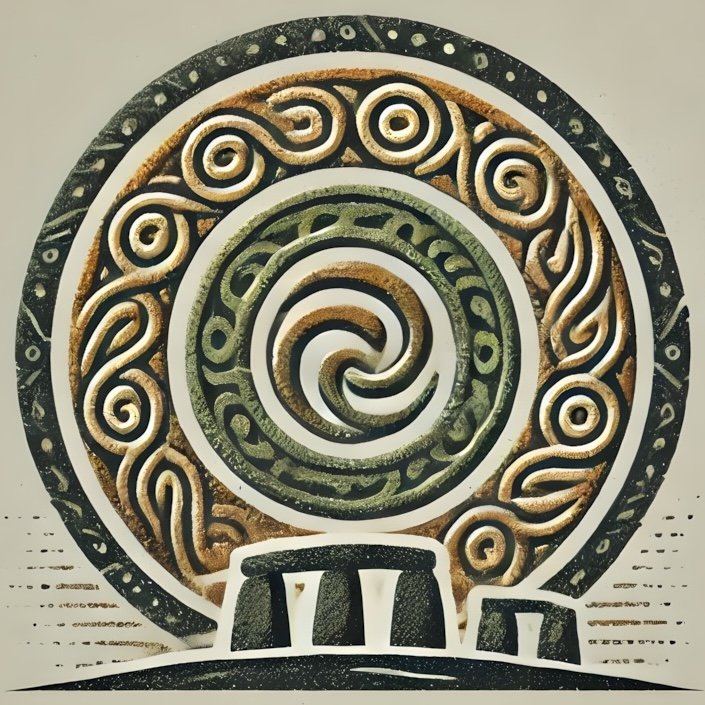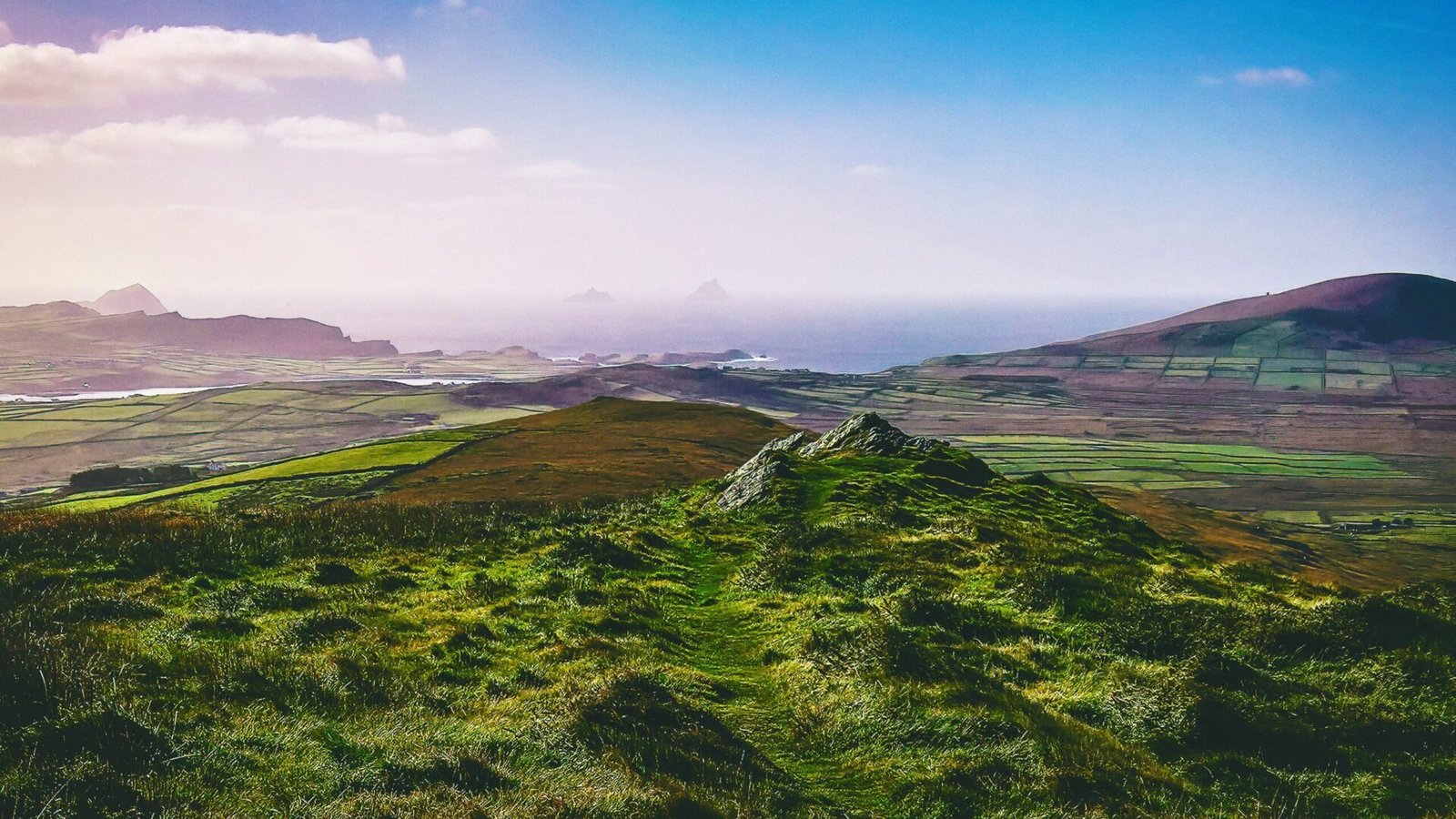Druids and Society: The Role of Druids and Religious Practices in Ancient Ireland
The ancient landscape of Ireland is steeped in a rich tapestry of mythology, spirituality, and cultural heritage. At the heart of this intricate web lies the figure of the Druid, a pivotal character in the social and religious fabric of pre-Christian Ireland. The role of Druids transcended mere religious duties; they were philosophers, teachers, and custodians of knowledge, wielding significant influence over the communities they served. This exploration of Druids and their societal role also delves into their relationship with other religious practices, particularly the advent of Christianity, and how these dynamics shaped the spiritual landscape of Ireland.
The Role of Druids in Ancient Irish Society
Druids were the intellectual elite of ancient Irish society, occupying a unique position that combined spiritual, political, and educational responsibilities. They were often seen as intermediaries between the gods and the people, tasked with conducting rituals, divining the future, and maintaining the oral traditions that preserved the history and lore of the Celtic tribes.
Spiritual Authority and Rituals
In a society deeply connected to nature, Druids performed rituals to honor deities, celebrate seasonal festivals, and ensure the fertility of the land. They were intimately familiar with the cycles of the moon and the sun, which guided agricultural practices and communal celebrations. Key events such as Samhain, Imbolc, Beltane, and Lughnasadh were marked by Druidic ceremonies that fostered a sense of community and continuity.
The Druidic practice of divination was also significant. Through various methods, including reading omens from natural phenomena or interpreting the flight of birds, Druids sought to provide guidance and insight into the future. This role as seers granted them considerable influence, as leaders and warriors often turned to them for counsel in times of uncertainty.
Education and Knowledge Keepers
Beyond their spiritual duties, Druids were the educators of their time. They imparted knowledge on a wide array of subjects, including law, medicine, and astronomy. The Druidic tradition emphasized oral learning, with students undergoing rigorous training that could last up to twenty years. This commitment to education ensured that the wisdom of the past was preserved and passed down through generations.
The Druids also played a crucial role in the legal system, serving as judges and arbitrators. Their deep understanding of the law and morality made them respected figures in disputes, helping to maintain social order. This multifaceted role solidified their status as pillars of society, revered not only for their spiritual insight but also for their intellectual prowess.
Relationship with Other Religious Practices
As Christianity began to spread across Ireland in the early medieval period, the relationship between Druids and the new faith became increasingly complex. The arrival of Christian missionaries, such as St. Patrick, marked a significant turning point in the religious landscape of Ireland. While some Druids resisted the encroachment of Christianity, others found ways to adapt and integrate aspects of the new faith into their practices.
Conflict and Coexistence
The early encounters between Druids and Christian missionaries were often marked by conflict. Druids, with their established authority and deep-rooted traditions, viewed the new religion as a threat to their way of life. The Christian emphasis on monotheism clashed with the polytheistic beliefs of the Druids, leading to tensions that sometimes erupted into open hostility.
However, the transition was not purely adversarial. In some instances, Druids and early Christians found common ground. The missionaries recognized the importance of local customs and traditions, often repurposing Druidic sites for Christian worship. Sacred wells, groves, and hills that had once been centers of Druidic ritual were reimagined as Christian pilgrimage sites. This syncretism allowed for a gradual blending of beliefs, as elements of Druidic spirituality were woven into the fabric of early Irish Christianity.
The Legacy of Druidic Thought
Despite the decline of the Druidic tradition, its influence persisted in various forms. Many aspects of Irish folklore and mythology can be traced back to Druidic beliefs, including the reverence for nature, the importance of the land, and the celebration of seasonal festivals. The rich oral tradition that Druids helped cultivate continued to thrive, giving rise to a wealth of stories that would shape Irish identity for centuries to come.
Moreover, the mystical aura surrounding Druids has endured in popular culture and modern spirituality. Today, many people are drawn to the idea of the Druid as a wise sage, a protector of nature, and a seeker of truth. This revival reflects a broader interest in reconnecting with ancient wisdom and understanding the interconnectedness of all life—a principle that Druids embodied in their teachings.
The Druidic Landscape: Sites of Significance
For those interested in exploring the remnants of Druidic influence in Ireland, several key sites offer a glimpse into this ancient world. Locations such as the Hill of Tara, a ceremonial site and the traditional seat of the Irish kings, are steeped in Druidic lore. The nearby Loughcrew Cairns, with their intricate passage tombs, are believed to have been used for rituals and ceremonies, showcasing the architectural prowess of the ancient Druids.
Additionally, the sacred sites of Glendalough and the ancient monastic settlement of Clonmacnoise reflect the transition from Druidic practices to early Christian worship. These locations serve as a testament to the enduring legacy of the Druids, where echoes of their spiritual practices can still be felt amidst the stunning Irish landscape.
In conclusion, the role of Druids in ancient Irish society was multifaceted, encompassing spiritual, educational, and legal dimensions. Their complex relationship with emerging religious practices, particularly Christianity, highlights the dynamic interplay of belief systems in shaping Ireland’s cultural heritage. As we traverse the ancient landscapes of Ireland, we can still sense the presence of the Druids, whose wisdom and teachings continue to resonate through the ages.
Meta – Learn about the influence of druids in ancient Irish society, their rituals, and how they shaped religious practices and connections to the landscape.

